Character Study
Show Don’t Tell
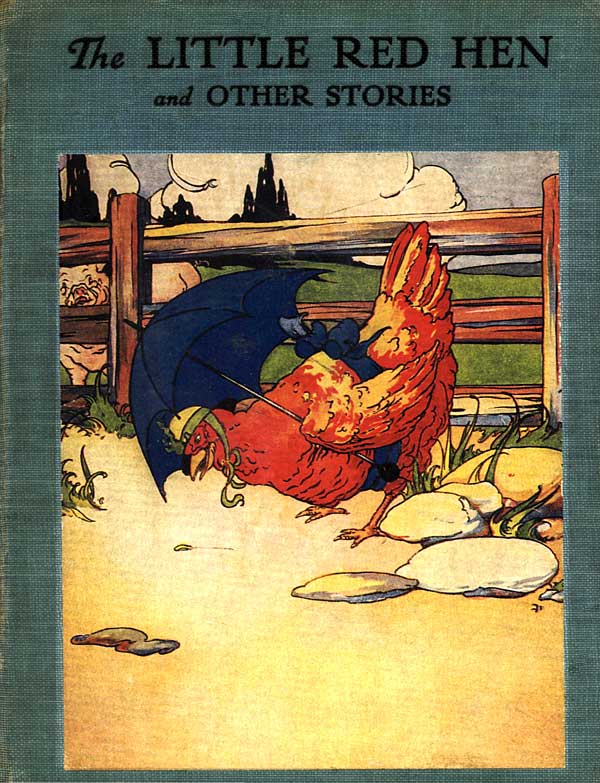
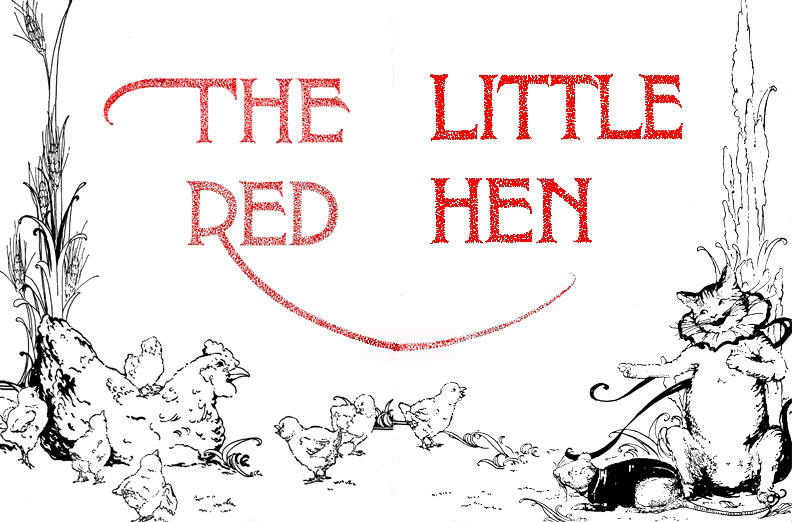
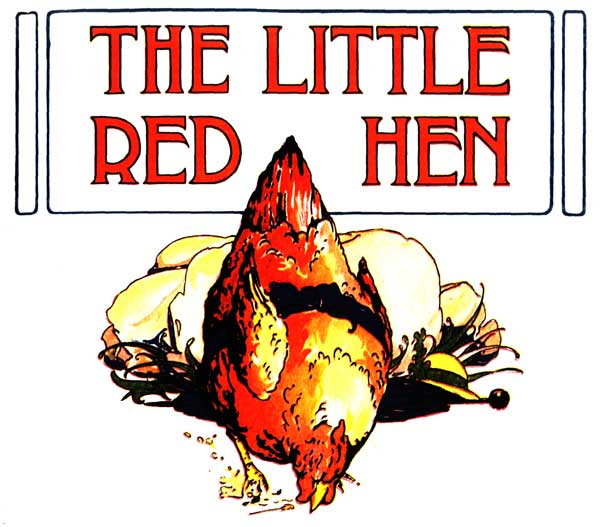
The Little Red Hen
Retold and Illustrated
by
FLORENCE WHITE WILLIAMS

The
Saalfield Publishing Company
Chicago – Akron, Ohio – New York
PRINTED IN U. S. A.
COPYRIGHT, 1918
BY
THE SAALFIELD PUBLISHING COMPANY

Little Red Hen lived in a barnyard.
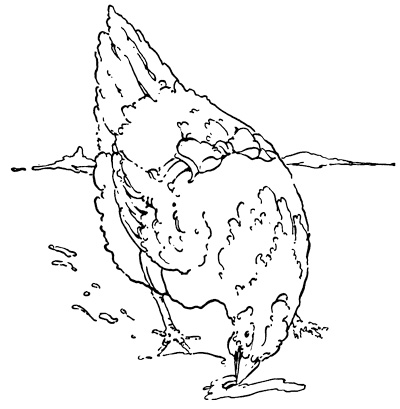
She spent almost all of her time walking about the barnyard in her picketty-pecketty fashion,
scratching everywhere for worms.


She dearly loved fat, delicious worms and felt they were absolutely necessary to the health of her children. As often as she found a worm she would call “Chuck-chuck-chuck!” to her chickies.


When they were gathered about her, she would distribute choice morsels of her tid-bit. A busy little body was she!
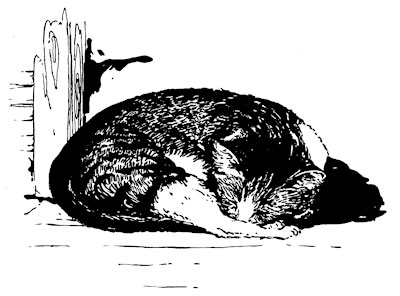
A cat usually napped lazily in the barn door, not even bothering herself to scare the rat who ran here and there as he pleased.
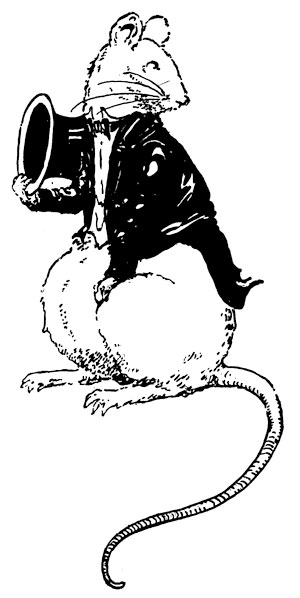
And as for the pig who lived n the sty—he did not care what happened so long as he could eat and grow fat.
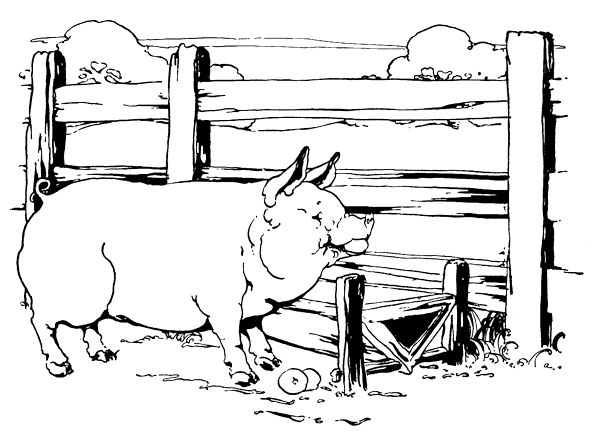

One day the Little Red Hen found a Seed. It was a Wheat Seed, but the Little Red Hen was so accustomed to bugs and worms that she supposed this to be some new and perhaps very delicious kind of meat. She bit it gently and found that it resembled a worm in no way whatsoever as to taste although because it was long and slender, a Little Red Hen might easily be fooled by its appearance.
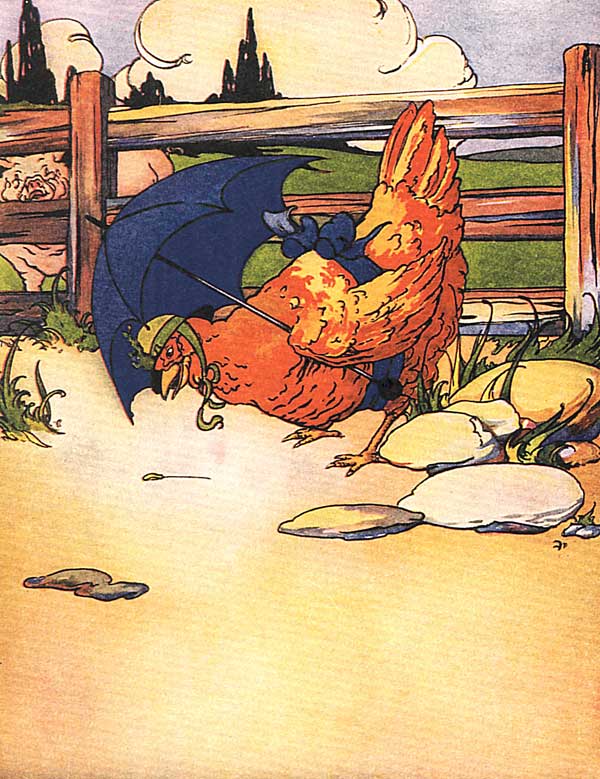

Carrying it about, she made many inquiries as to what it might be.
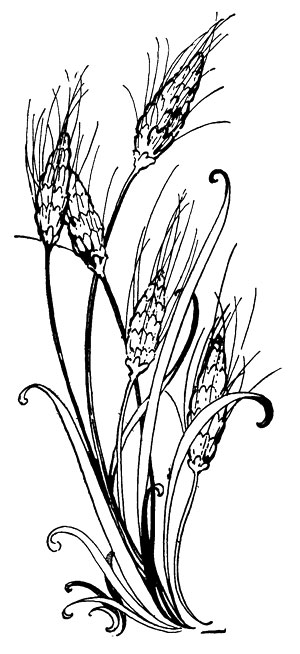
She found it was a Wheat Seed and that, if planted, it would grow up and when ripe it could be made into flour and then into bread.
When she discovered that, she knew it ought to be planted. She was so busy hunting food for herself and her family that, naturally, she thought she ought not o take time to plant it.

So she thought of the Pig—upon whom time must hang heavily and of the Cat who had nothing to do, and of the great fat Rat with his idle hours, and she called loudly:

“Who will plant the seed?”
But the Pig said, “Not I,” and the Cat said, “Not I,” and the Rat said, “Not I.”
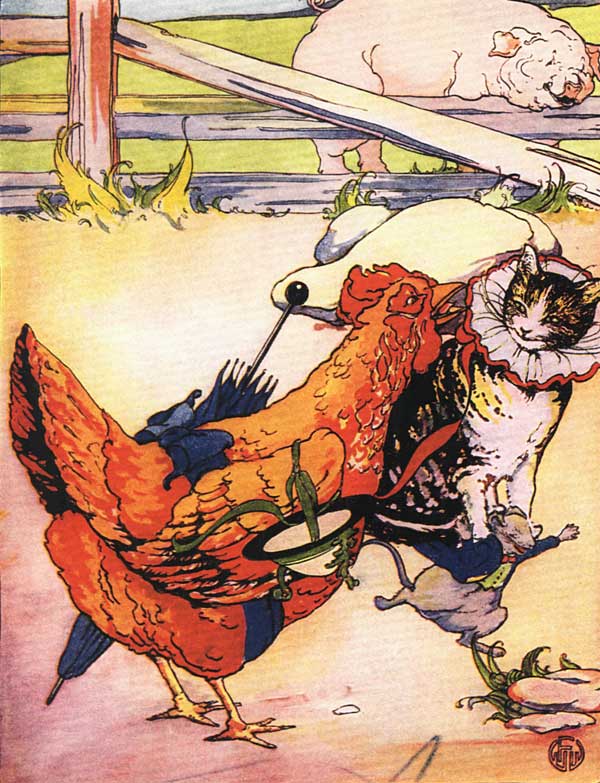
“Well, then,” said the Little Red Hen, “I will.”
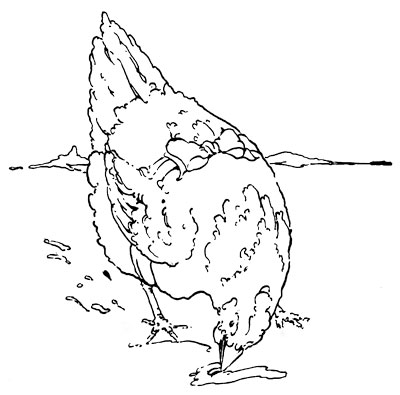
And she did.
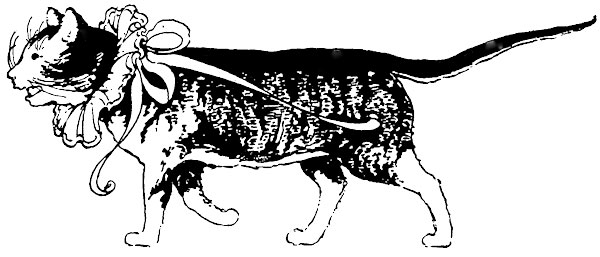
Then she went on with her daily duties through the long summer days, scratching for worms and feeding her chicks, while the Pig grew fat, and the Cat grew fat, and the Rat grew fat,
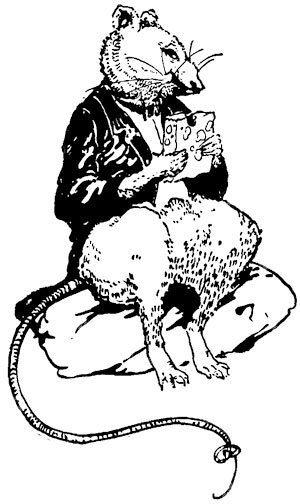
And the Wheat grew tall and ready for harvest.

So one day the Little Red Hen chanced to notice how large the Wheat was and that the grain was ripe, so she ran about calling briskly: “Who will cut the Wheat?”
The Pig said, “Not I,”
the Cat said, “Not I,”
and the Rat said, “Not I.”
“Well, then,” said the Little Red Hen, “I will.” And she did.
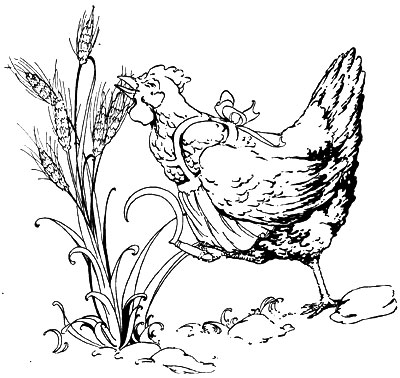
She got the sickle from among the farmer’s tools in the barn and proceeded to cut off all of the big plant of Wheat.
On the ground lay the nicely cut Wheat, ready to be gathered and threshed, but the newest and yellowest and downiest of Mrs.Hen’s chicks set up a “peep-peep-peeping” in their most vigorous fashion, proclaiming to the world at large, but most particularly to their mother, that she was neglecting them.
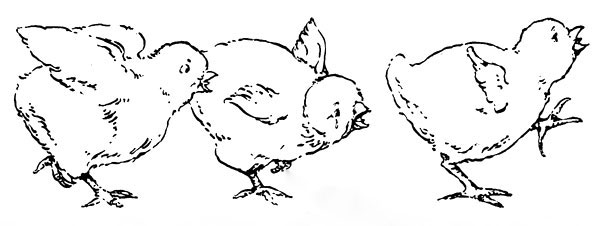
Poor Little Red Hen! She felt quite bewildered and hardly knew where to turn.
Her attention was sorely divided between her duty to her children and her duty to the Wheat, for which she felt responsible.
So, again, in a very hopeful tone, she called out, “Who will thresh the Wheat?”
But the Pig, with a grunt, said, “Not I,” and the Cat, with a meow, said, “Not I,” and the Rat, with a squeak, said, “Not I.”’
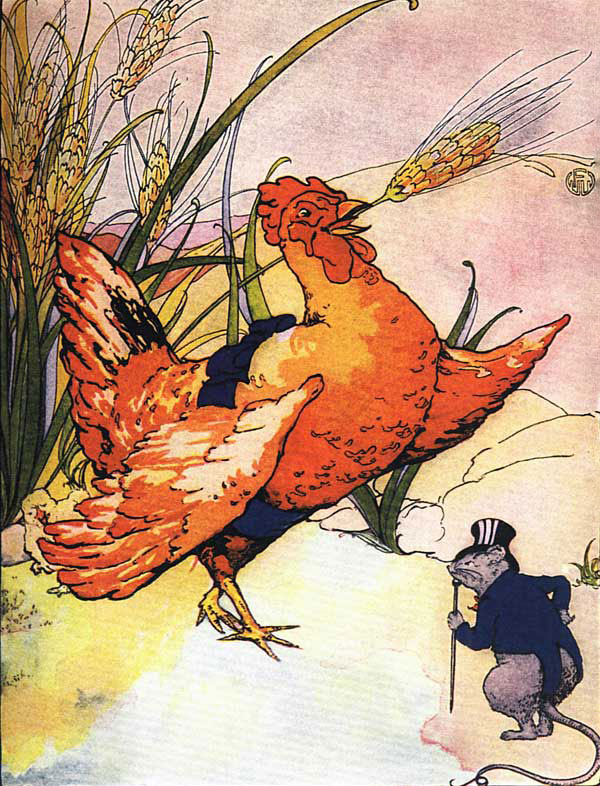
So the Little Red Hen, looking, it must be admitted, rather discouraged, said, “Well, I will, then.”
And she did.
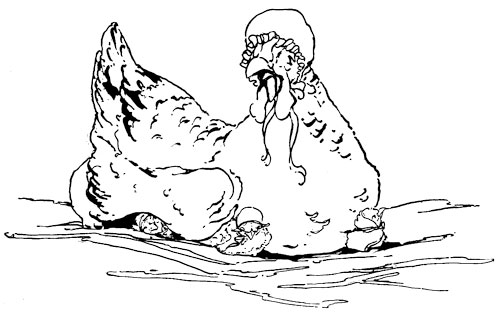
Of course, she had to feed her babies first, though, and when she had gotten them all to sleep for their afternoon nap, she went out and threshed the Wheat. Then she called out: “Who will carry the Wheat to the mill to be ground?”
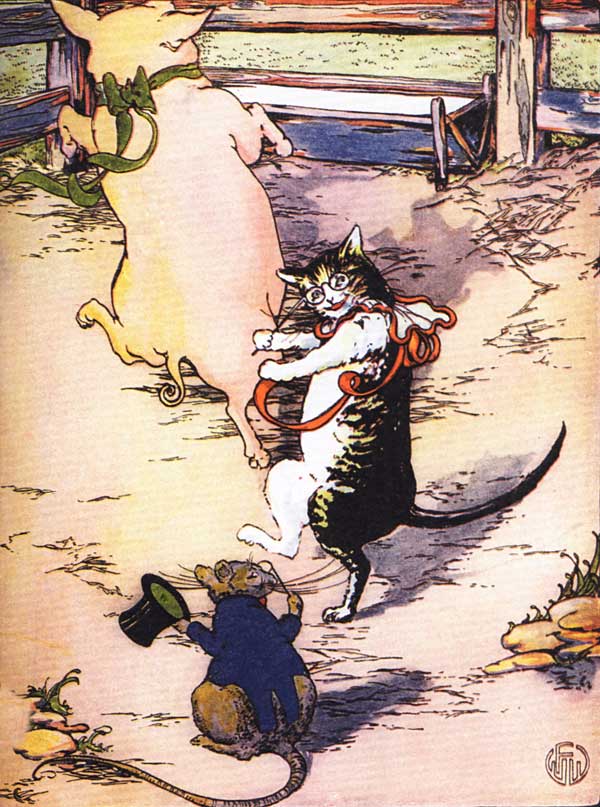
Turning their backs with snippy glee, that Pig said, “Not I,”
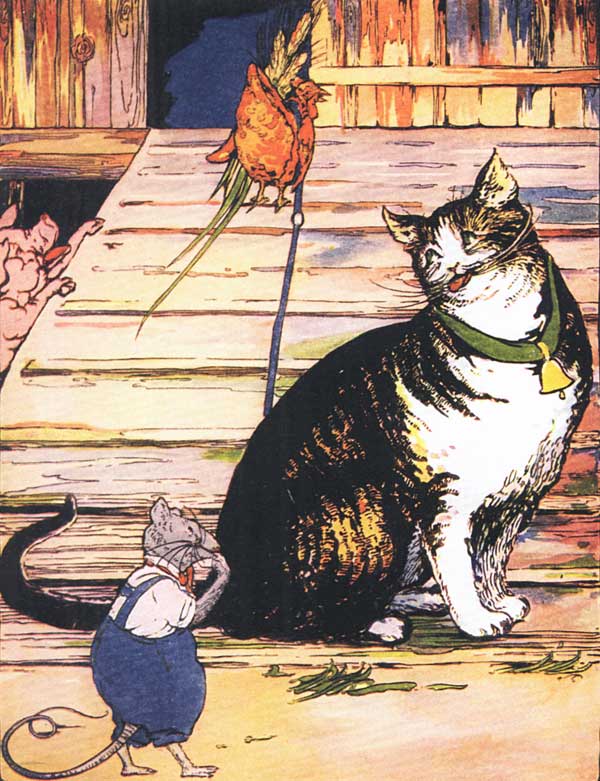
and that Cat said, “Not I,” and that Rat said, “Not I.”
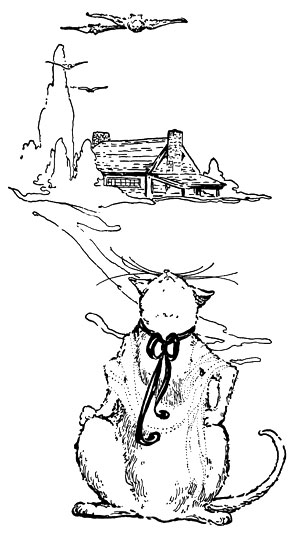
So the good Little Red Hen could do nothing but say, “I will then.” And she did.
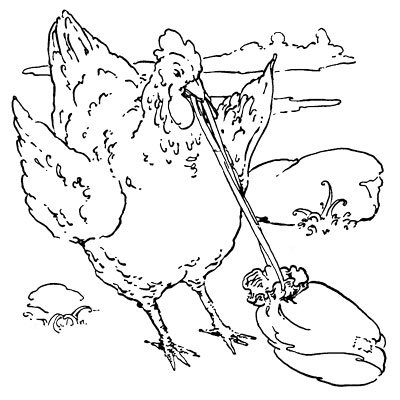
Carrying the sack of Wheat, she trudged off to the distant mill. There she ordered the Wheat ground into beautiful white flour. When the miller brought her the flour she walked slowly
back all
the way
to her own
barnyard
in her own
picketty-pecketty
fashion.
Paul Galdone